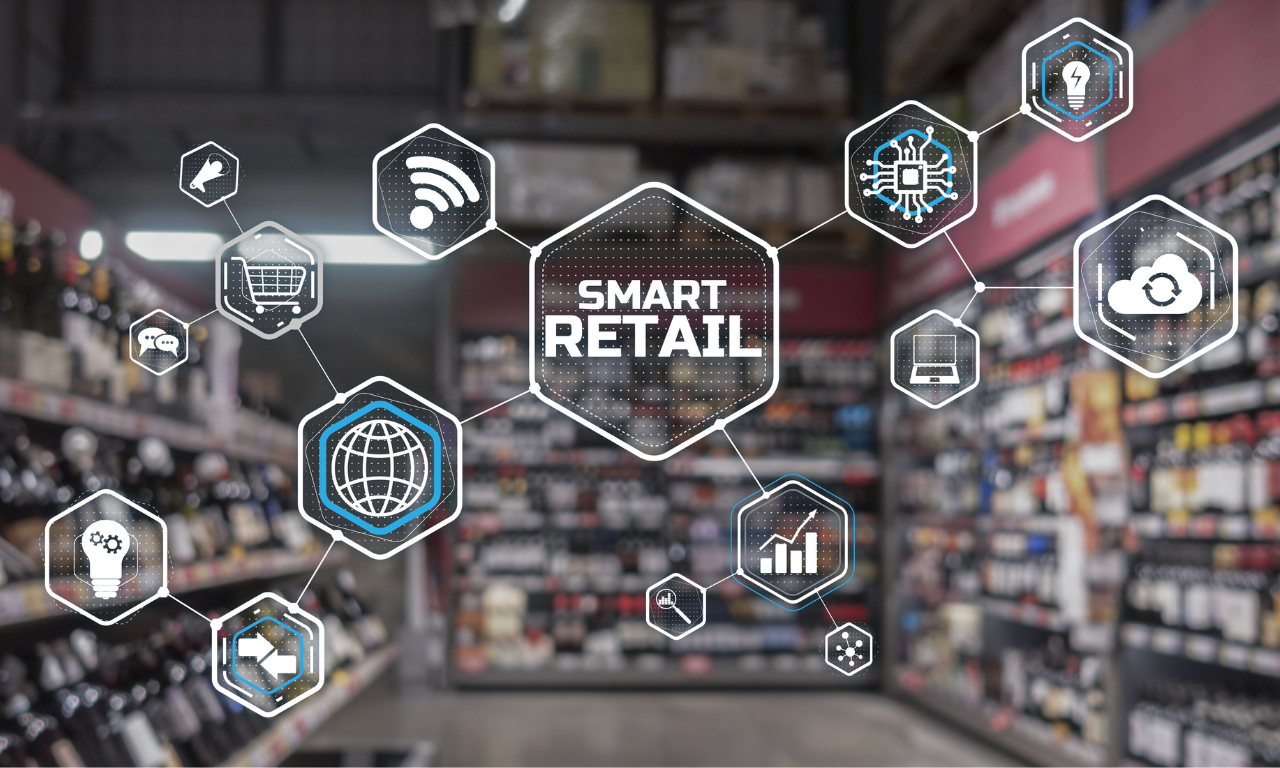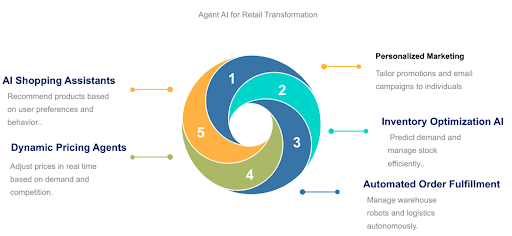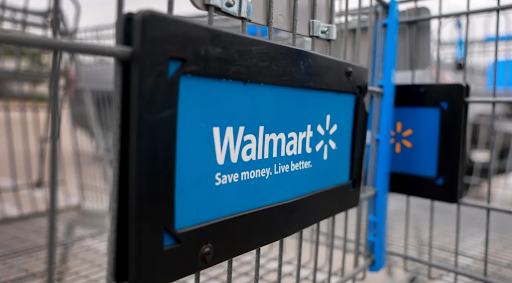Agentic AI in Retail with Use Cases: The Future of Shopping

Shopping habits are evolving, and so are the expectations that come with them. People want faster, smarter, more personalised experiences and retailers are under pressure to deliver.
That's where agentic AI comes in to significantly impact the retail business, where flexible operations and excellent customer service are crucial for success.
Agentic AI is making a big difference by helping people find the right product and making sure the whole process goes smoothly, even after the sale. It brings together multiple channels, scales personalisation, and improves overall efficiency.
The world market for retail AI is expected to grow by more than 400% between 2024 and 2030. This is because it can help solve some of the biggest problems in retail.
This blog talks about agentic AI in retail, why it's important, and how it's changing the future of shopping.
New Product Evaluation with Agentic AI
When retailers introduce a new product, it's a big deal because that's how they stay fresh and keep consumers excited. The hard part is that most new products don't do well. In fact, 75% of retail and consumer packaged goods (CPG) fail to make even $7.5 million in their first year. This is a huge number, and it shows how risky it can be to launch something.
This is where agentic AI in retail steps in to make things different for both retailers and customers.

-
Spotting problems at the initial stage
Companies usually check on how well their products are doing every once in a while. But most of the time, it's too late to fix a problem once they see it.
AI agents work differently. They are always watching and analysing. They keep an eye on everything that could affect how well a product does, like tracking sales, shelf availability, pricing, and special offers. These things are always on, so they can find problems early and give stores time to fix them before they impact sales.
-
Smarter merchandising and pricing decisions
AI agents keep comparing a product to similar products that have been launched before. This helps them understand why a new item might not be doing well. For example, maybe the price isn’t aligned with others in the same category, or perhaps it’s not promoted often enough. It could be something as simple as a wrong shelf placement.
This is where AI-powered merchandising plays a key role. Using real-time data and past trends to help make decisions, AI helps fine-tune everything from how the shelves are set up to when promotions happen.
And when it comes to price? With dynamic pricing AI tools, agents can change prices based on what's working and what's not, making the business more competitive without the guesswork.
-
Taking action without being told
Imagine having a smart assistant that can make decisions whenever you need it without any directions. This is exactly what agentic AI brings to the table!
It instantly fixes things when it sees something going wrong.
Here’s what that could look like:
-
Modifying prices to match changes in demand or moves made by competitors
-
Making small changes to ads to get more attention and sales
-
Suggesting better shelf arrangements to make it easier for customers to find products
-
Updating planograms to reflect what’s actually working in-store
-
Notifying shop employees when items are misplaced or out of stock

Product Performance Optimisation Using Agentic AI
Agentic AI is transforming how retailers optimise product performance. Traditional methods of manual data analysis can take hours and still leave room for errors. Now, with retail automation solutions, AI agents can work like smart assistants, quickly going through huge amounts of data and giving clear, actionable insights.
These AI-driven tools help retailers by:
-
Identifying which products are selling well and which aren’t
-
Spotting trends and shifts in customer behaviour instantly
-
Forecasting demand to avoid overstocking or stockouts
-
Recommending pricing or promotion changes for better sales
Planogram Compliance and Shelf Planning
Retailers often face challenges after resetting a product category, such as sales going down or promotions not working well. One common reason? The shelves don't line up with the planogram, which is a layout for the goods, or some items are missing.
That’s where AI agents with intelligent shelf monitoring step in.
If sales go down after a restart, the AI can quickly find the problem, whether it's missing stock, things that got lost, or a promotion that isn't working well. Even after the detection, it's not over for the AI agents. They automatically start taking actions, like:
-
Triggering restock orders,
-
Advising on a better mix of products and
-
Offering better ideas for advertising
It can also let the staff know right away if there are any mistakes in the layout or if anything needs to be changed. This keeps everything on track.
Even if a promotion seems good but doesn't work, smart promotion optimisation lets the AI figure out what went wrong and change the campaign. This boosts the visibility of products that are actually selling well.
This quick and smart response helps retailers fix issues quickly, and it also makes sure that sales, promotions, and shelves work in alignment.
Sales Forecasting with Agentic AI
Forecasting sales in retail usually involves going through a lot of data, spotting patterns manually, and making educated guesses. But thanks to the integration of agentic AI in retail, that's quickly changing.
These smart tools do more than just keep track of numbers. They look at trends, guess future outcomes, and even suggest what should be done all by themselves. As a result? Better, faster, and more accurate predictions that help category managers stay ahead of the game.
What are the benefits?
-
Faster and smarter insights
Using retail automation solutions, things that used to take hours, like collecting data and looking at trends in sales, can now be done in minutes. AI agents point out exactly what's going well, what's not, and what's next.
-
Actionable forecasts
It's not enough to just know that sales might go down. These AI tools do more by suggesting things that should be done. For example:
-
If the AI thinks that demand for a product will go down, it might suggest a promotion to get people interested again.
-
AI in retail supply chain can let the team know ahead of time if there are likely to be stock gaps.
Imagine a category manager who looks over sales reports for four hours every week. With an AI agent, they get a clear summary quickly, along with ideas for what to do next that are specific to them. This will transform how retailers work, right?
Competitor Analysis in Retail with Agentic AI
A new or better competitor coming into your local market is one of the most ignored threats in retail. It could be a new store opening, a competitor changing the way they set up their store, or just expanding their range. At first, these might seem to be minor changes, but they can quickly affect your sales and customer loyalty.
That’s where AI-driven competitive analysis comes in. With the help of an AI agent, you can stay one step ahead by:
-
Spotting competitive threats early, before they impact your bottom line
-
Predicting local-level impacts, such as how specific stores or product categories will be affected
-
Getting smart recommendations, like adjusting prices or having targeted ads
-
Acting quickly, the AI can even carry out these changes automatically if needed
With agentic AI in retail, your business can act quickly, accurately, and safely. Your approach changes from being reactive to being proactive.
Promotion Planning and Price Elasticity
For many years, planning promotions was mostly based on gut feelings or old sales records. Stores often gave big deals without knowing if they were really needed or would make their money. Today, retail AI agents for customer insights are completely changing the way they do things.
Price elasticity is the idea that these AI bots use to figure out how customers really react to changes in prices. Now that teams know this, they can make promos that really work, increasing demand without cutting into profits.
Here’s how agentic AI makes a difference-
-
Understands customer behaviour: AI analyses huge amounts of real-time data to figure out which goods or groups of customers are most sensitive to price changes.
-
Makes smarter choices: With this insight, AI suggests deals that are more likely to increase sales without giving too many discounts.
-
Improves profitability: Profitability goes up because promotions are more focused and effective, which helps preserve margins.
This approach is what we call smart promotion optimisation, i.e., using intelligence and not guesswork to drive results.
Use Cases of Agentic AI in Retail
Retailers across the globe are beginning to adopt agentic AI in retail to solve real challenges like managing the supply chain, creating ad campaigns, etc. Here are some real-world examples of how it's already making a difference:

-
Walmart’s smarter inventory management
Walmart introduced a conversational AI agent to help merchants identify and solve supply chain and inventory issues across its massive retail network. This tool actively finds the causes of problems, which helps teams fix them more quickly and correctly.
-
Puma’s creative campaigns with zero human input
The famous sportswear brand Puma used AI agents to create an entire ad with no human help. The ad was created by an AI from the idea to the final production. This shows how Agentic AI is changing marketing by automating creative development in a way that has never been possible before.
Future of Agentic AI in Retail
Agentic AI in retail is transforming the future of how you shop. This new wave of intelligent systems won’t wait for instructions. They’ll act, learn, and adapt on their own. Imagine stores that run themselves, digital assistants that really know what you need, and teams where AI and humans work together to make decisions, with each using their own skills.
Here is what the future holds-
-
Self-managing stores will handle inventory, staffing, and promotions using real-time data and predictions.
-
AI shopping assistants will guide customers personally, offering advice, suggestions, and support across all channels.
-
Human-AI teamwork will let staff focus on creativity and strategy while AI handles complex data and decisions.
-
Ethical AI use, with transparency, fairness, and trust, will become a major brand differentiator.
Agentic AI Across Different Industries
Creating a paradigm shift, Agentic AI is reshaping industries through its emphasis on intelligent, autonomous decision-making. Explore how it's being applied across sectors like healthcare, retail, education, legal, and more to drive innovation and efficiency.
Conclusion on Agentic AI in Retail
Agentic AI in retail is changing the way stores work by turning routine tasks into smart, flexible systems that improve both speed and the customer experience. Retailers who are ahead of this change will set the bar for new ideas and long-term customer loyalty.
GrowthJockey acts as both a business accelerator and technology partner, helping retailers harness the power of agentic AI through tailored AI solutions that drive smarter operations and richer customer experiences.
Partner with GrowthJockey to grow your business, improve operations, and keep your customers coming back.
Agentic AI in Retail FAQs
1. What is an agentic AI for retail industry?
Agentic AI in retail refers to smart systems that can handle things like inventory, customer service, and sales without constant human oversight.
2. What is an example of agentic AI?
One great example of agentic AI in retail is Amazon Go shops, where AI systems handle tasks like check-out and stock management with little help from humans.
3. How is AI used in the retail industry?
AI helps stores predict what customers will want, make shopping more personal, handle inventory automatically, and give better customer service across all channels.
4. Is agentic AI the next big thing?
Yes, agentic AI is going to change retail by making stores more autonomous and customer interactions more personalised.








